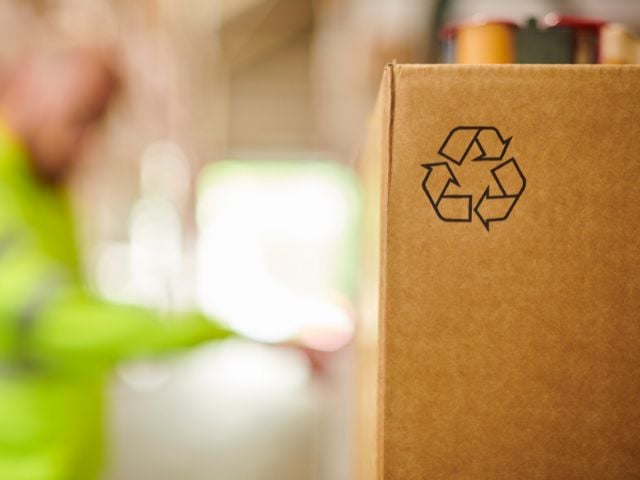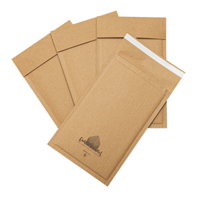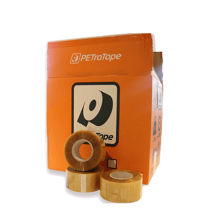
Did you know the UK generates approximately 4.9 million tonnes of plastic packaging waste each year? This staggering statistic, reported by the Environmental Audit Committee (EAC) in their Plastic Packaging: Progress and Targets report, underscores the urgency of addressing packaging waste. To address this issue, we’ll outline the value of sustainable packaging and its pivotal role in steering us towards a zero-waste future. We'll also explore not only the urgency of zero waste but also the value of innovative packaging reuse schemes and the implementation of greener packaging materials.
The Urgency of Zero Waste: Driving Change Across Industries
Sustainable packaging is the linchpin in the journey towards zero waste, and by opting for materials that minimise environmental impact, we can significantly reduce the ecological footprint associated with traditional packaging. In the UK, waste management practices, guided by initiatives like the Waste and Resources Strategy, emphasise the importance of sustainable packaging in reducing landfill waste and promoting circular economy principles. They also serve as a necessary accompaniment to the rollout of more environmentally viable materials as a driving force for effective change in reducing global emissions and fostering substantive change.
Greener Materials
Sustainable packaging materials, such as biodegradable packaging and paper-based materials, play a crucial role in driving a zero-waste future in both the UK and globally, offering less resource-intensive production techniques and a reduced reliance on damaging chemicals across industries.
Organic Solutions

One example of sustainable packaging material is biodegradable products made from materials such as cornstarch, sugarcane, or mushroom mycelium. These materials are renewable, compostable, and break down naturally, reducing the environmental impact associated with traditional packaging. This simplifies processing and empowers end users (both businesses and consumers) to rid themselves of unwanted packaging in a more eco-friendly manner.
Paper Products
Paper, as a renewable resource, is derived from sustainable materials, supporting eco-friendly forestry practices. Its wide recyclability not only diminishes environmental impact but also fosters recycling initiatives, aligning businesses with government initiatives aimed at reducing reliance on single-use plastics. Moreover, the positive resonance of paper-based packaging with consumers reinforces a commitment to environmentally conscious choices, further enhancing the perception of businesses as champions of sustainability. The material is widely recyclable and can be processed within conventional recycling systems, meaning the uptake of greener processes is more viable than with more difficult-to-dispose materials such as plastics.
Recycled Packaging
Incorporating recycled packaging, like tape, mailers and stretch film with 30% or more recycled content, promotes a greener commercial approach for business. By using recycled materials, operators reduce waste, conserve resources, and extend the lifecycle of materials, in turn, minimising environmental impact, aligning with sustainability efforts, and supporting a circular economy. Choosing recycled packaging also demonstrates a commitment to responsible resource management, reduces the carbon footprint, and sets a positive example for others, fostering a more sustainable packaging industry.
Commercial operations in the UK can further benefit by cutting their tax costs as a result of recycled material use, further incentivising long-term change across the commercial value chain.
Legislation for Change

The UK government's Extended Producer Responsibility (EPR) framework mandates that businesses bear the responsibility for the end-of-life disposal of their packaging. This not only encourages a shift towards designs that prioritise recyclability and reusability but also aligns with waste management practices that emphasise responsible disposal. These legislative measures reinforce the commitment to a greener, more sustainable future.
Circular Economy Principles

At the heart of sustainable packaging lies the adoption of circular economy principles. Rather than following a linear 'take, make, dispose' model, a circular approach emphasises recycling, reusing, and reducing waste. In the UK, packaging reuse schemes are gaining momentum, with businesses collaborating to reduce single-use packaging and encourage consumers to participate in sustainable practices.
One example of a retailer in the UK successfully implementing a reuse scheme is Waitrose, whose "Unpacked" trial ran in several of its stores in 2022.
In the Unpacked trial, customers were given the option to purchase a variety of products, including cereals, pasta, and frozen goods, using their own reusable containers. The store provided refill stations where customers could fill their containers, helping to reduce the need for single-use packaging. Customers could also use reusable bags for produce and bring their own containers for fresh meat and fish.
Businesses Leading the Charge

Implementing sustainable packaging practices requires a collaborative effort from businesses across industries. To this end, we actively engage with our clients to explore innovative and eco-friendly alternatives to conventional packaging systems and materials. This involves a thorough analysis of their supply chains, product life cycles, and end-of-life scenarios to ensure a holistic approach towards sustainability.
Educating and Empowering Businesses
One of the key challenges in transitioning to sustainable packaging is the need for awareness and education. Businesses must not only adopt eco-friendly practices but also communicate these efforts transparently to consumers. In line with the UK's Green Claims Code, we advocate for honest and clear communication about the environmental benefits of sustainable packaging.
One way we work towards educating businesses on our sustainability driven mission is through the informative Sustainability Packaging Guide that includes 6-pages of definitions and explanations on sustainable concepts, backed by data and facts on how we can all be more sustainable.
We’re committed to driving positive change in the industry by promoting materials and practices that contribute to a greener, more sustainable future. To begin the journey to eco-friendly, future-proof practices today, send us a message, email us on sales@allpack.uk.com, or call 01543 396 700.

